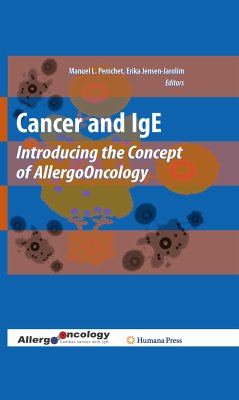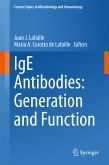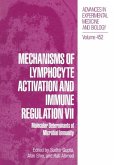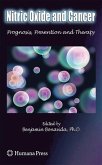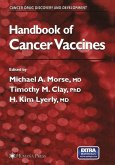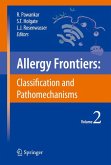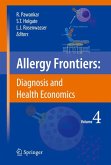AllergoOncology by definition aims to reveal the function of IgE-mediated immune responses against cancer cells in order to enhance the understanding of its biology and to develop novel IgE-based treatment options against malignant diseases. Cancer and IgE: Introducing the Concept of AllergoOncology opens new avenues towards IgE antibodies as key effector molecules able to confer protection against cancer development and progression. This affinity-matured class of antibody, belonging to Th2-mediated immunity, uses an exquisite panel of potent effector cells which can eradicate malignant cells. Importantly, IgE is also capable of binding to professional antigen presenting cells thereby enhancing the presentation of cancer antigens and leading to a significant anti-tumor immune response. Based on its anti-tumor efficacy, which has been shown in vitro and in preclinical models, IgE can be potentially used in human in the context passive and active cancer immunotherapy. In summary, this book, which is the first of its class, is a comprehensive volume about the evolving new field AllergoOncology.
Dieser Download kann aus rechtlichen Gründen nur mit Rechnungsadresse in A, B, BG, CY, CZ, D, DK, EW, E, FIN, F, GR, HR, H, IRL, I, LT, L, LR, M, NL, PL, P, R, S, SLO, SK ausgeliefert werden.
"The book begins by giving a brief description of the long history of observations and research ... into the existence of a negative correlation between the frequency of allergies and the incidence of cancer, as well as a history of allergy research in general. ... the new concept of AllergoOncology, as introduced in this book, is a provocative one ... . a well-written and presented book introducing a new concept in cancer immunology, as well as a comprehensive description of IgE biology in general." (Andrew T. Vaughan, Immunology News, February, 2011)
"This book represents a description of how IgE antibodies may play a role protecting against cancer development and progression. ... The audience for this book includes oncologists, allergists, and researchers, as well as students and fellows. It has a place in any health sciences library. ... It is well written and full of thoughtful points and it would be a useful addition to the library of an educational institution or to the laboratory of researchers interested in this topic." (Marion C. Cohen, Doody's Review Service, July, 2010)

